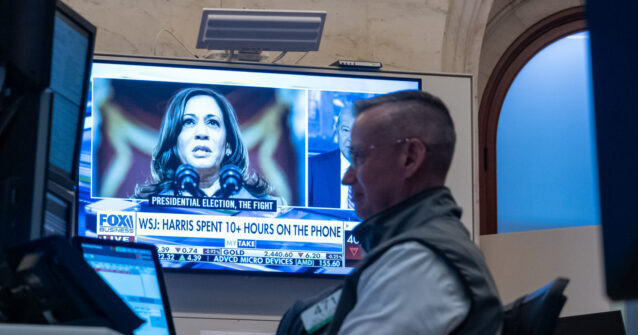
The global stock market panic hit stocks in the U.S. Monday morning.
The post U.S. Stocks Plunge as Recession Fear Takes Hold appeared first on Breitbart.

The major stock indexes fell sharply on Monday morning, reflecting heightened fears that the U.S. economy may be headed for a serious economic slump.
The decline highlights the level of worry among investors since economic data released last week showed unemployment rising and job growth slowing more than expected. Surveys of manufacturers also indicated a steep fall off in activity in the sector, which is often a bellwether for the economy.
The economy added just 114,000 jobs in July, according to the Department of Labor, significantly below the 180,000 forecast. Seperate surveys of business executives known as purchasing managers by the Institute for Supply Management and S&P Global both showed that factory activity had contracted in the month.
The Dow Jones Industrial Average fell 2.3 percent after the opening bell. The Nasdaq Composite plunged four percent. The S&P 500 fell by 3.1 percent. The Russell 2000 index of smaller-sized companies fell by 5.1 percent.
The Cboe Volatility Index (VIX)—often called the “fear index”—exploded higher. Prior to a sharp rise in Friday, the VIX had been on a 190-day streak of closing below the historical long-term average of 20, the longest stretch below the average since 2018. On Monday morning, it hit 55, the highest level since the pandemic’s worst days.
The market in federal funds futures, a derivative that allows investors to speculate on Federal Reserve monetary policy, now reflects a nearly 90 percent chance that the Fed’s target will be a half a percentage point lower than the current benchmark after the September meeting. That could imply a larger-than-usual 50 basis point cut at that meeting or an extremely rare cut in August outside the scheduled Fed meeting.
Politics may be playing a role. Vice President Kamala Harris has risen in the polls, with some election forecasts now saying she is slightly favored to win in November. The market had been rising during the months when Trump was seen as the winner.




